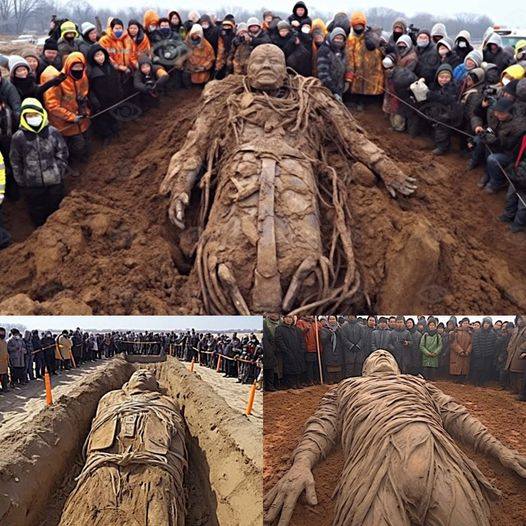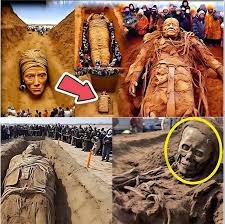The Startling Unveiling of an Unknown Civilization Sends Shockwaves Across the Scientific World

Archaeologists have made a jaw-dropping discovery that’s rewriting everything we thought we knew about human history—the remains of a previously unknown civilization buried deep beneath layers of time. This astonishing find, uncovered in a remote region previously thought to be devoid of significant archaeological value, has revealed structures, intricate carvings, and advanced artifacts that suggest a society far more sophisticated than its era should have allowed.

The unearthed remnants include meticulously crafted stone buildings and complex irrigation systems, indicating a high level of engineering skill and societal organization. However, what is most baffling to experts is the absence of any known cultural link to established civilizations. This has left scholars scrambling to decode the origins of this enigmatic society. Could this be a lost civilization that predated ancient Egypt or Mesopotamia? Or perhaps something even older, hinting at a forgotten chapter in human evolution that has long been buried under the sands of time?
Among the most intriguing findings are DNA traces and symbols resembling celestial maps etched into the structures. These revelations challenge our entire understanding of early humanity, suggesting that our ancestors may have had a more profound connection to the cosmos than previously imagined. The symbols hint at a sophisticated astronomical knowledge, raising questions about how this civilization interacted with their environment and what beliefs drove their advancement.

The discovery has ignited fierce debates within the scientific community. Some researchers argue that the artifacts indicate advanced metallurgy and agricultural practices that should not have existed at this point in history, while others suggest that this civilization may have had contact with known cultures, influencing their development. The prospect of an advanced culture disappearing without a trace creates a sense of urgency among historians and archaeologists alike, as they grapple with the implications of this find.
Are we on the verge of uncovering humanity’s greatest hidden legacy? As excavation teams continue to unearth more artifacts and gather data, the potential to rewrite history looms large. This discovery serves as a reminder of the vast unknowns that still exist within our understanding of human civilization and invites us to reconsider the narratives we have long accepted.
In conclusion, the unveiling of this unknown civilization is not merely an archaeological triumph; it is a profound invitation to explore the depths of our past. As we delve into this mystery, we are reminded that history is often more complex and interconnected than we can fathom, and that the echoes of our ancestors continue to resonate through time.











